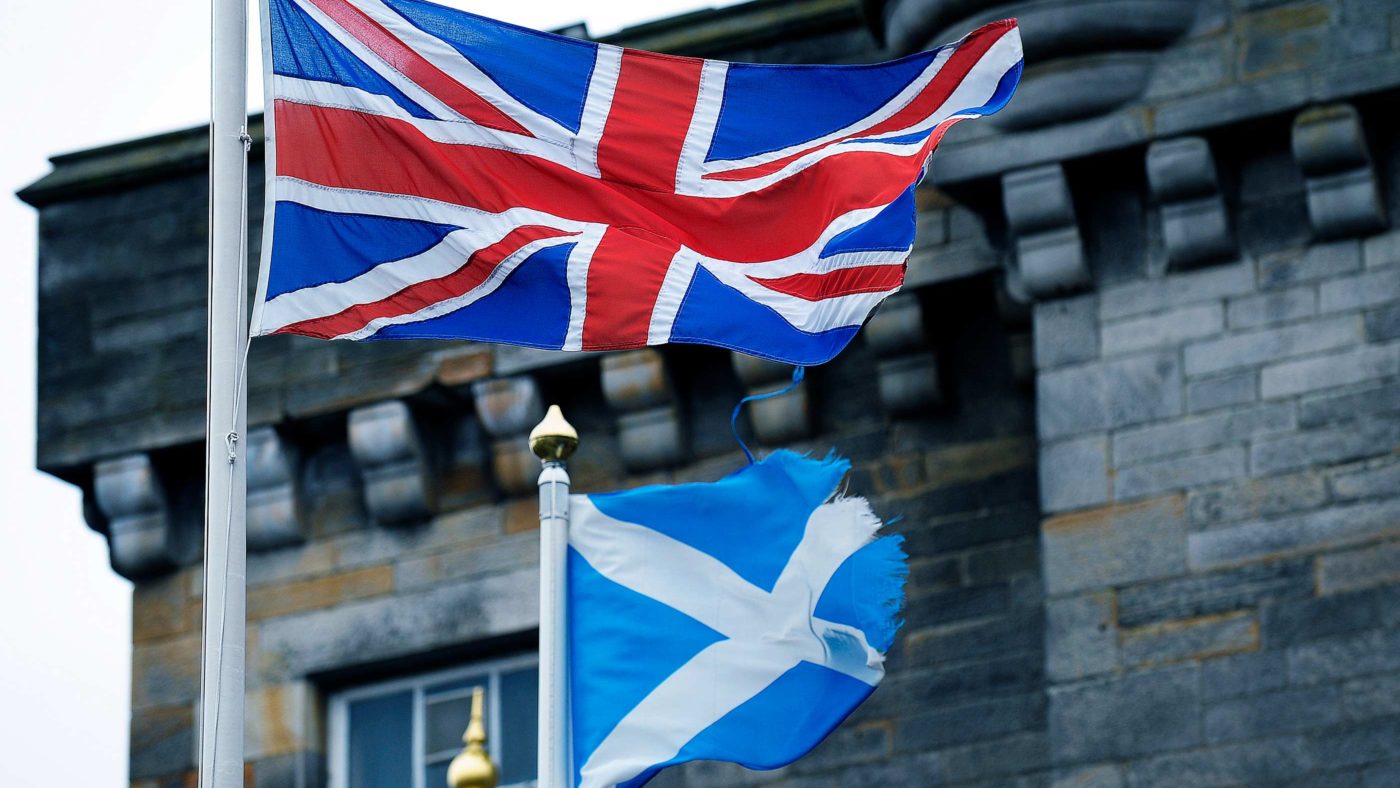An unexpectedly strong result in last month’s Scottish elections – holding the number of Conservative MSPs steady and thus denying the Scottish Nationalists an overall majority – seems to have encouraged the Government to adopt a more muscular stance on the Union.
The weekend papers report that, amongst other things, British diplomats are now to start talking about the United Kingdom as one country, abandoning the confederalist “four nations” language that has plagued official statements since the 2019 election. But even more interesting is this:
“The Turing university exchange scheme, which replaces the EU Erasmus scheme, will offer exchanges for students between parts of the UK as well as with foreign universities.”
There has been talk of a ‘Union bursary’ in the background for a couple of years, but there was no sign of it when the Government first announced Turing. As I argued on this site back in January, encouraging students to move around the UK is an important part to securing a long-term future for the country.
At present, our devolved higher education sector strongly discourages Welsh and Scottish students from studying elsewhere in the UK. Ministers in Edinburgh and Cardiff Bay subsidise university for home students – so long as they stay at home. The result is less mixing and fewer opportunities to make friends and build connections in other parts of the country – and thus, inevitably, reduced chances of cultivating a sense of British identity.
Without a strong underlying common identity, the legitimacy of Britain as a community for political government will come under intolerable pressure. Now a lot of devolutionaries are actually fine with this, and talk up a future wherein British governance is replaced by intra-home nations horse-trading and Supreme Court adjudication under the rubric of ‘shared rule’.
However, they still imagine the UK being held together by fiscal transfers – the one subject on which even Welsh Labour will start enthusing about ‘our United Kingdom’. The problem is that if you repudiate Britain as a community for the pooling of decision-making, you will not long maintain it as a community for the pooling of cash. If Britain isn’t a nation, there is no ‘British taxpayer’.
Those who sneer at the idea of saving the Union by putting the flag on projects, getting diplomats to watch their language, or repainting the trains, miss the point. None of these policies will do the job on its own. Remember too that it was the quest for ‘big bang’ solutions to the problem of separatism that gave us devolution, ‘The Vow’ and the other self-inflicted disasters of the past two decades.
Ministers are right – belatedly right, but right – to recognise that any policy aimed at bribing the Nationalists into quiescence is doomed to failure. Unionists cannot keep asking voters to reject the separatists’ conclusions whilst tacitly accepting so many of their premises. The Government needs to defend unionism as a superior idea, and central to that is making the case that yes, sometimes it is better to do things collectively as the British, rather than dressing up maximal devolution with generous fiscal transfers as “the best of both worlds”.
But an inescapable fact of fighting the war for the fine details is that there are a lot of fine details. Making hundreds of small, pro-British adjustments may work, but you need ministers and civil servants to be focused on the work of actually doing that.
Again, the papers have promising signs: “Whitehall officials will be told to stop ignoring the Union and put its preservation at the heart of policymaking.” Then again, this is the same Prime Minister who recently allowed inter-personal squabbles to collapse his Union Unit. There is nobody in Downing Street coordinating this work full-time.
Which is a shame, because the powers the Government has granted itself to do it under Section 50 (1) of the UK Internal Market Act (Ukima) are extraordinarily extensive.
This landmark legislation is the foundation of what I call ‘Ukima Unionism’, which has also been described as “devolve and compete”: the doctrine of basing the defence of the UK on the British state doing things, doing them well, and being seen to do them well.
However, with the architects of Ukima now out of government, it was far from certain that this would be followed through. This weekend’s announcements are a small step in the right direction.
Click here to subscribe to our daily briefing – the best pieces from CapX and across the web.
CapX depends on the generosity of its readers. If you value what we do, please consider making a donation.


